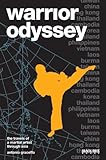 OK. Everyone knows that quote by Woody Allen or whoever about showing up. You know, “70% of winning is showing up”. Well, Woody Allen, that daughter-dating scoundrel, lied to you. The truth is “70% of winning is showing up” is a bunch of bull…
OK. Everyone knows that quote by Woody Allen or whoever about showing up. You know, “70% of winning is showing up”. Well, Woody Allen, that daughter-dating scoundrel, lied to you. The truth is “70% of winning is showing up” is a bunch of bull…
…Because, in fact, 100% OF WINNING IS SHOWING UP. I mean it. That’s all you have to do. Show up. Be there. And it will take care of itself. Have you ever noticed that people at the top of their respective fields are often the most prolific? Do you think this is an accident? Chief, this is not a coincidence. Sure, there are exceptions. But take TEDZUKA Osamu/手塚治虫, one of the most prolific manga creators in history. Ask yourself, was he prolific because he was good or good because he was prolific? I say the latter. Shakespeare wrote quite a bit of noss, too. Michael Jordan and Larry Bird practiced like absolute fiends — we shouldn’t insult them by attributing their skill to race, height (MJ was below NBA average, by the way) or even talent until we’ve spent at least as much productive court time as them. Let me put it this way — assuming you are able-bodied, if you worked as hard as an NBA player for as long as an NBA player on basketball, you would be an NBA player, but only if you worked as hard. That Pavlina chap has like a kajillion articles on his blog: he didn’t make it off one post. More on topic, the best group of Japanese speakers on the planet, a group many call “the Japanese”, just happen to spend more time hearing and reading Japanese than any other group. They’ve “shown up” to Japanese as if it were their…job or national pastime or something. But there’s nothing special about this group of people; when a Japanese person speaks Japanese to you, what she is demonstrating is nothing more than the result of dedication, albeit often unwitting dedication. Whether you are Japanese by default (born and raised in Japan) or by choice, it doesn’t matter, your path and your task are essentially the same: show up.
I’m from Kenya. Sure, we have a snow-capped mountain, but we don’t have real snow or ice or anything. Yet I learned to ice-skate last year. Do I have some talent for ice-skating? No. But I read up on Wayne Gretzky and how he had ice-skated every day (4-5 hours a day), how his dad had made him a home rink and everything. Apparently, he even had his skates on while eating dinner (he’d wolf down that Canadian food they fed him, and then he’d go back outside; he skated for hours every day, and went pro at about 17). I’m not an ice-hockey expert, but it seems quite clear to me that Gretzky made himself a great hockey player purely through ice time; that man showed up on ice for more hours than any of his peers. So I tried to model the man in my own small way, and ice-skated almost every day (4 days/week minimum, 2 hours per day — sometimes 3 hours, sometimes 90 minutes) for two straight months (November and December). Now I can ice-skate. It wasn’t magic. The combination of being on the ice all the time and the people who saw me on the ice all the time and decided to give me some pointers, and this burning desire to not be out-skated by 6-year-olds (freaking toddlers giving me lip and having the skill to get away with it…over my dead body, man, over-my-dead-body), all that combined to make me a competent skater. No one who sees me knows it’s been less than a year since I actually learned to skate. I can barely even remember what it was like when I used to walk around that rink holding onto the wall for dear life. (For the record, the first time I touched the ice was in August 2002 at a mall in Houston, Texas. The second time was in December 2002 in Salt Lake City, Utah. In both cases, I didn’t actually know how to skate, and nothing carried over to my ice-skating project that started in November 2006). Anyway, the point is, after being on the rink all that time on a daily basis, Greztky or no Gretzky, it would be hard not to learn how to skate. When you show up, it’s hard not to succeed. With all the time I spent hardcoring on Japanese, it would be a struggle not to be fluent.
Today, all over Japan, Greater China and the world, kids are being born. OK, admittedly not that many kids (haha…gotta love that population shrinkage humor! *wink* *nudge*), but they are being born. Those kids are going to know Japanese/Mandarin/Cantonese. But not because of parenting or genetics as such, but because they’re going to show up. They’re going to be surrounded by Japanese/Chinese 24/7/365.24219878. Are you going to let them beat you? Babies? Freaking BABIES? Beat YOU? Are you going to take that? You, a human being with a marvellous working brain capable of learning whatever is given it? And you’re going to let babbling, drooling half-wits (sorry, babies…don’t take it personally) beat you? If not, then get up off your rear and start doing all [language] all the time!
I’m going to take a leap here and tell you what I really think: I don’t believe in prodigies. I do not believe that any person holds a significant advantage over you; I do not deny the possibility that some people may have an advantage over you, but I absolutely reject the idea that that advantage is significant. I explained this in “You can have do or be ANYthing, but you can’t have do or be EVERYthing”. I think people invented the idea of prodigies in order to excuse themselves and their own children while seeming to congratulate the receiver of the title “prodigy”. It’s much easier on everyone’s egos to say “I or my child cannot do thing T like person P because person P has some semi-magical genetic superpower” than to say “I or my child cannot yet do T like P because I have not yet worked as hard W as P”. This is why Buddhism, which started off as a personal development movement, metamorphosed into a religion. Why be like Mike or Siddharta, when you can just sit back and worship them? Why work on your jumps, when you can watch the fruits of Michael’s work on his? Why free your own mind, when you can look up to someone who’s already freed his? It’s a very aristocratic idea that has no place in a true meritocracy, but the very people who are screwed over by it (regular folk like us) are at the same time very much in love with it: If there are prodigies, no one will call us out for not trying because they’re not trying either, and because we have created a condition that can only be fulfilled by accident of birth, our excuse is airtight: we can go about being mediocre for the rest of our lives, blameless.
Gretzky, Jordan, these people worked harder at their sports than you and I. So they started working earlier than you, this doesn’t make them prodigies, child or otherwise, this just makes them people who started earlier (and not even that early, Jordan famously got cut from his HS basketball team). To admit that they were not prodigies, to admit that they busted their little behinds to get where they were (no matter their age), does not make them less. To me, it only makes them more; it makes them greater. These were not superhumans. These were normal humans who made themselves super; they were not given a legacy like a Betty Crocker cookie mix that just needed eggs and milk, they made one from scratch. And that, to me, is something (someone) infinitely greater.
Bruce Lee is reported to have said:
“I fear not the man who has practiced 10,000 kicks once, but I fear the man who has practiced one kick 10,000 times.”
A lot of times, we judge people (including ourselves), we call them (ourselves) “normal”, “prodigy” or “challenged” based on their first try. On their FREAKING first try. Don’t EVER EVER EVER EVER EVER EVER judge yourself on your first try. At least wait until your 10,000th.
Don’t buy into all this kafuffin about how you have to start golf or violin or a language in the womb if you ever hope to be good. The only real reasons that there aren’t many late bloomers are money and flexibility. Money to buy equipment and time to practice, and flexibility of the mind — a willingness to learn and grow, to accept change and, yes, even to accept sucking for a while.
Adults have this competence fetish; they cling desperately to their dignity like a little boy to his security blanket; they want to be good at everything they do, and (they think) everyone expects them to be good at anything they do if they are to do it at all — adults are meant to be dignified and able; adults aren’t allowed to show ignorance or confusion. Well, forget that crap. Let go of your pride: you will suck at anything you are new at and little kids will be better than you. It’s okay, that’s how it’s supposed to be — those kids used to suck, too. Sucking is always the first step on the path to greatness; it’s not a question of how many times the earth has made a full rotation around the sun since you were born; it’s a question of what you’ve done during those rotations. As my gamer friends might say — all who pwn must first be pwned. And the time to be pwned is at the beginning. You are a noob, accept it; it’s not a death sentence, it’s just a rank — you can win yourself a promotion.
The fact is, you are a human. Compared to other animals, you can’t run very fast, you can’t jump very high, you aren’t very big or strong. But you have this thing called a brain. And it’s purpose is to learn to do things — new things, things that it didn’t know before. This brain is, of course, connected to the rest of your body so your whole body can join in the fun of learning new things; your body itself is constantly growing and changing. You’re not like a statue, motionless and set in stone, unless you choose to be. You’re not “too old”, it’s not “too late” — who even gave you the right to decide what time was right? I never got that memo! Who died and made you the god of When It Is No Longer The Right Time To Do Something?! Are you going to let your life be ruled by stupid old wives’ tales and stale folk wisdom? Are you going to fit yourself to bad research results? Are you going to be guided by how things are usually done? Are you going to be a little worker ant and live inside that cruddy little box of mediocrity that the world would draw for you if you would let it? Are you going to just read history or are you going to make it? Are you going to spend your whole life Monday-morning-quarterbacking yourself, talking about what you would do if you were younger? Are you going to live out your own little Greek tragedy, fulfilling everyone else’s lowest expectations of you? I think you know the answers to those questions. So, stop whining, and start doing. Whatever it is. Do it. And keep doing it. As long as you keep moving, you’re always getting closer to your destination.
Nap Hill said it best:
“Do not wait; the time will never be “just right.” Start where you stand, and work with whatever tools you may have at your command, and better tools will be found as you go along.”
This article is copyright (©) 2007 Khatzumoto/AJATT.com and reprinted with permission | May 18, 2010
]]>
by John Fotheringham
Most language learners fail because they lack the motivation to put in the time and consistency needed to succeed. But this is not simply a matter of laziness. I have seen even the most driven, self-disciplined people fail in foreign language learning. While discipline is certainly important (I will be writing a post on this soon), I believe that most people are unmotivated (and ultimately fail) for 3 main reasons:
- A Lack of Comprehensible & Interesting Input
- A Lack of Connection to the Culture
- A Lack of Positive Reinforcement
Comprehensible & Interesting Input
“The best methods are those that supply comprehensible input in low anxiety situations, containing messages that students really want to hear.”
~ Stephen Krashen
Read just about any book, blog or well-written bathroom stall scribble on the subject of foreign language learning and you’re bound to hear the term “comprehensible input.” One of Stephen Krashen’s key theories, the Input Hypothesis goes as follows: a learner will “acquire” a language (which is to be distinguished from the conscious and rather unproductive process of “learning”) only when listening or reading input is just above their level of comprehension.
So if you are new to Japanese, for example, watching the nightly news or reading the Asahi Shimbun is probably not going to provide very much comprehensible input and will do little for your progress in the language. On the flip side, newspapers may in fact be below one’s level of comprehension for more advanced learners. To continue one’s progress, such learners should seek out materials that include more advanced vocabulary.
The second (and I would argue more important) half is getting interesting input. Even if you understand the basic gist of an article, new words and structures are less likely to stick if the content bores you to tears. Our brains are amazingly efficient at filtering out information that we are uninterested in.
With the plethora of content available today online, there is simply no excuse for listening to or reading content that doesn’t float your boat. I personally find podcasts to be the best medium because there are just so darn many of them on so many different topics. Blogs are a close second for the same reason, but you should try to listen more than you read.
When it comes to choosing topics, always ask yourself this question:
“Would I read or listen to this in my native language?”
If the answer is no, find something else.
When you use content that is not overly easy or difficult for you (and covers topics that are of interest), you are much more likely to spend sufficient time with the language and the culture that speaks it. Which brings us to…
Cultural Connection
Most people set out to learn a foreign language so that they can communicate with the culture who speaks it. Yet I am often surprised at how many people learn foreign languages in a cultural vacuum.
If you want to converse freely with native speakers, you need to know what makes them tick.
Many language books do mention some interesting tid-bits of culture (eating customs, how and when to bow, kiss or shake hands, etc.), but few ever dig deeper into the culture’s psyche.
Since words only account for 7% of meaning in human communication (on average), it is essential to learn how a culture expresses the other 93%. This is especially true in “high-context” cultures like China, Taiwan, Japan and Korea that rely more on non-verbal cues than low-context cultures like Germany, England and the U.S. Consider this: when someone says yes in Japan, for example, do they really mean “Ok, I agree to do that” or is it simply a culturally conditioned way of saying “Hell no” without causing offense?
Learning about a culture doesn’t just mean figuring out whether to bow or shake hands; it means finding out the historical, moral and emotional fibers that make the culture unique. And yes, different cultures are in fact different. Don’t fall into the trap of believing that just because a culture laughs, cries and gets angry that they do so for the same reasons (and in the same circumstances) as you.
Positive Reinforcement
“I’m good enough, smart enough, and doggone it, people like me.”
~Stuart Smalley (Al Frankin)
One of the most potent fuels in foreign language learning, or any complex physical/psychological skill is positive reinforcement.
This can be internal (the quiet but intense satisfaction you get when you can effectively communicate an idea, request or need to a native speaker in their language) or it can be overt (getting compliments on how well you speak the language, pronounce certain words, or use “difficult” idioms, vocabulary or structures.) Both kinds are important, but keep in mind that many cultures (especially Japan and Taiwan) often compliment people on their language ability as a matter of course.
There are four main sources of potential positive or negative feedback:
1) Feedback from Your Better Half: If you are dating (or married to) someone from the target language group, make sure to communicate clearly with them about how (and WHEN!) you like to be corrected. Most native speakers have absolutely NO IDEA how to learn or teach their native language and don’t have a good sense of what will be hard for you and why.
2) Teachers & Tutors: Find a tutor who is patient and positive, and waits until after you have finished speaking to make corrections. If you are living in an immersion environment, find local native speakers who are studying another foreign language (perhaps your native tongue) so that they will be more patient and empathetic with your mistakes. I am not saying that you should not seek correction of you mistakes (I think you should), but it needs to be done so in a nurturing way that does not raise the “affective filter” (see the Linguistionary) and discourage future output.
3) Yourself: Another excellent way to get positive reinforcement is to provide it yourself! While looking in the mirror like Stuart Smalley may help, it has the nasty side-effect of scaring off friends and lovers. Instead, I recommend making video and audio recordings every 3 months or so. This allows you to really see the progress you have made in the language. Progress happens so steadily that it is often hard to notice improvements in pronunciation, vocabulary, grammar, etc. Recordings take out the guesswork.
4) Strangers: Interestingly, feedback from people you don’t know can often have the biggest impact (for better or worse). In countries like Japan and Taiwan, you will often be praised for speaking the language (no matter how little you know.) In the early stages, this can help provide motivation to continue learning. But in these same countries, people will often assume you can’t speak the language and begin listening for English words even when you are speaking their language. This happens less and less the more your pronunciation improves, but don’t underestimate the power of assumption. When this inevitably does happen, try not to take it personally. It happens even to highly fluent individuals from time to time…
Take Action
- Find foreign language content that is matched to your level and interests. Again, I think podcasts are your best bet. Download iTunes if you don’t have it already. It’s free and easy to use.
- Make friends with native speakers of the language you are learning. Become a tutor or join clubs or activities that will put you in contact with new people from the desired language background.
 Antonio speaks numerous languages (French, German, Italian, Khmer, Mandarin Chinese, Spanish and Thai), and has used his language skills to good ends. He has devoted the past 10 years of his life to chronicling martial arts masters around the world in his web TV show Martial Arts Odyssey and has worked tirelessly to fight the atrocities being waged against ethnic minorities in Burma.
Antonio speaks numerous languages (French, German, Italian, Khmer, Mandarin Chinese, Spanish and Thai), and has used his language skills to good ends. He has devoted the past 10 years of his life to chronicling martial arts masters around the world in his web TV show Martial Arts Odyssey and has worked tirelessly to fight the atrocities being waged against ethnic minorities in Burma.
On top of all this, Antonio has written an impressive trail of books, including The Monk from Brooklyn: An American at the Shaolin Temple, Adventures in Formosa, Rediscovering the Khmers, Boats, Bikes, and Boxing Gloves: Adventure Writer in the Kingdom of Siam, The Desert of Death on Three Wheels, and his latest book, Warrior Odyssey: The Travels of a Martial Artist in Asia.
The Interview:
In this exclusive interview with Antonio Graceffo, he “pulls no punches” (pun intended) when sharing his views on how to learn foreign languages and martial arts effectively. His wisdom stems from years spent living abroad coupled with sound theory.
To learn more about Antonio, visit his site SpeakingAdventure.com.
]]>




